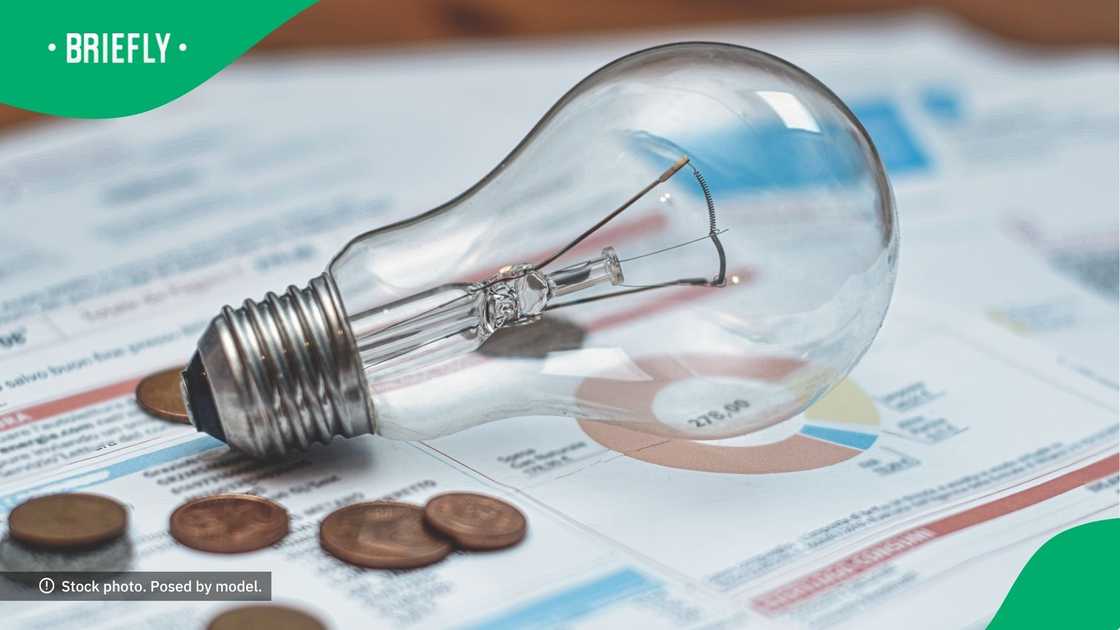South Africans Question Prepaid Electricity Costs After Receiving Fewer Units for R800
- South Africans are increasingly frustrated with high electricity costs, reflecting a widespread feeling of paying more for less
- This frustration stems from a complex tiered prepaid tariff system and additional deductions for service fees and outstanding charges
- The escalating electricity prices are burdening households and businesses, leading to public outcry and calls for clearer regulation
South Africans are voicing widespread frustration over the escalating cost and lack of transparency in electricity pricing, which, exacerbated by complex tiered tariffs and hidden deductions, is straining household budgets and impacting businesses.

Source: Getty Images
South Africans continue to express growing frustration over the cost of electricity, with a recent post on Reddit once again sparking national conversation.
A user on the r/askSouthAfrica group, by a Reddit user Professional_Low6875, shared their shock after purchasing R800 worth of prepaid electricity and receiving only 171 units in return. The post reflects a widespread feeling among consumers who feel they’re paying more and getting less.

Read also
"That's a good rate": Woman frustrated by unreliable domestic workers despite R7K salary, SA debates
Prepaid electricity in South Africa operates on a tiered tariff system, known as a block tariff. The more electricity a household purchases within a month, the higher the cost per unit becomes. While this system is designed to encourage efficient usage, many consumers are caught off guard by how dramatically the unit price escalates as they move through the tariff blocks. He asked:
PAY ATTENTION: stay informed and follow us on Google News!
"Is prepaid electricity a scam? I just bought prepaid electricity for R800, and all I received was 171 units. Does this make sense to anyone? Because it doesn’t make sense to me! 😳"
On top of that, additional costs, such as municipal service fees, metering company charges, and VAT, reduce the amount of actual energy that users receive. In many cases, users are also unaware of outstanding charges that are deducted automatically during a recharge, further reducing the number of units delivered.
South Africans demand fair pricing in electricity supply amid rising costs
Many consumers feel that there is a lack of transparency and fairness in how electricity is priced and delivered, especially for prepaid users. The pricing structure is complicated, and most people don’t fully understand how or why their costs vary so widely month to month. As a result, South Africans are feeling the pinch. Electricity has become a significant financial burden for many households, particularly during winter when consumption naturally increases.
Electricity prices in South Africa have risen dramatically, with recent tariff increases of over 12% affecting both Eskom direct customers and municipal suppliers across different usage tiers. Beyond individual frustration, the high cost of electricity has broader implications for the economy.
While some users suggest buying electricity at the beginning of the month to avoid higher tariff brackets, others argue that real relief will only come with clearer regulation, improved communication, and greater accountability from municipalities and metering companies. South Africans demand fair pricing in electricity supply amid rising costs, as the current pricing structure places a heavy financial burden on households and businesses.

Read also
South African TikTok creator went viral by transparently revealing her new home's R300k construction cost

Source: Getty Images
Here's how Mzansi reacted to the electricity costs
Track_me said:
"It’s clearly not a scam because you did receive electricity. It’s just extremely expensive—like it is for everyone in the country."
EditingAllowed wrote:
"Unfortunately, paying customers end up covering the costs for those who steal electricity, along with corruption and an overstaffed, inefficient Eskom. These high prices are hurting consumers and businesses. Strangely, no political party or media platform seems to be giving this issue the attention it deserves. For example, 600 workers at Assmang in KZN are set to lose their jobs due to rising electricity costs, which have increased by more than 930% since 2008."
Unburying Beetle commented:
"Highlighting these issues might get journalists into trouble, as often happens in authoritarian states. Whether it’s the ruling party or their sponsors, inconvenient truths tend to be buried."
OutsideHour802 said:
"You need to provide more information. Which municipality are you in? Is this a municipal meter or a landlord’s sub-meter? Is this your first recharge this month? Were there any outstanding service fees? If it’s a City of Joburg municipal meter, you’ll likely pay a R230–R250 service fee, which would explain receiving 171 units for R800. If it’s a sub-meter, the metering company takes a cut, and landlords often add additional fees."

Read also
"Rich people are humble": Millionaire shares reason for driving same car for 20 years, SA divided
Professional_Low6875 responded:
"This is in Tshwane. I recently moved into a complex that uses Impact Meters. Nothing is owed to the municipality. The recharge voucher service fee was R45. I used the FNB app to buy, and this wasn’t my first recharge this month, I already paid their R200 fee."
Anxrchh wrote:
"The more electricity you buy during the month, the more expensive it becomes. We make our full purchase at the beginning of each month to avoid higher tariffs later. For R2,000, we usually get over 600 units."
Copthill said:
"It’s not about the time of the month you buy—it’s the total amount you buy that moves you into higher tariff blocks."
Antinatalistic_Pizza added:
"It’s the cumulative total you’ve spent in a month that matters. Buying R2,000 in one go gets you cheaper units initially. But if you buy R1,000 twice, you might end up in a higher bracket for the second purchase."

Read also
"Very informative": Man breaks down electric blanket power usage in rands and units, SA impressed
SinTax_ZA commented:
"That’s not exactly how it works. The first portion, say R2,000, is charged at a lower rate, and any amount above that is charged at a higher rate. So buying R4,000 at once still gives you the lower rate for the first R2,000."
Afullstopdot said:
"The moment you buy a large amount, like R3,000, you get pushed into a higher tariff tier. Any further purchases that month are more expensive unless the month resets."
OutsideHour802 added:
"You might want to contact the metering company directly or ask your landlord for a usage statement. But based on the reviews they’ve received on Google and HelloPeter, don’t expect great service."
Party_Landscape5825 explained:
"Yes, electricity seems cheaper at the beginning of the month, but here’s why: Municipalities reset their block tariffs monthly. So when you make your first purchase at the start of the month, you’re paying the lowest rate. As you buy more units, you move into higher blocks where the per-unit price increases. This has more to do with how much you buy, not when."

Read also
"This gives me hope": Woman shows Thembisa clinic after removal of foreign nationals, SA impressed
Puzzleheaded-Ebb4233 said:
"It’s not a scam, but if you owe your municipality anything, they’ll deduct it from your electricity purchase."
Check out the Reddit post below:

Source: Twitter
3 Briefly News stories about electricity
- Dr Kgosientsho Ramokgopa, the electricity minister, said that the government is taking a look at the electricity policy.
- Ekurhuleni mayor Nkosindiphile Xhakaza addressed residents of Tembisa after protesting against the cost of electricity.
- A man went viral after recording himself complaining about rising electricity costs, with many netizens relating.
Source: Briefly News


